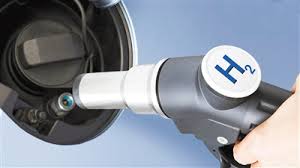The Future of Water Fuel Hydrogen Oxygen Machine and Hydrogen Energy, and the Hydrogen Oxygen Fuel Cell Market
Date:Tue, 07 May 2024 09:26:15 GMT Publisher:郑州硕丰精密机械有限公司 水燃料氢氧机、氢能源
The Future of Water Fuel Hydrogen Oxygen Machine and Hydrogen Energy, and the Hydrogen Oxygen Fuel Cell Market
Water fueled hydrogen oxygen machines and the future of hydrogen energy
1、 The prospect of water fueled hydrogen oxygen machines
The application of water fuel hydrogen oxygen engine in fuel saving of automotive engines:
It can also be called a hydrogen oxygen fuel saver, which uses the vehicle's own generator power supply to automatically generate the current required by the fuel saver host through the power controller. The water inside the fuel saver host is ionized and decomposed into hydrogen and oxygen, and the hydrogen and oxygen mixture is transported to the engine cylinder through a safety isolation water supply device and pipeline, and burned together with other fuels to achieve fuel saving.
Due to the input of oxygen, the fuel of the original engine is burned more fully, improving fuel efficiency, which is one of them; On the other hand, hydrogen is an environmentally friendly high-energy fuel (the fuel used in space shuttles, rocket launchers, etc. is hydrogen), with a combustion heat energy higher than gasoline and diesel, which is three times that of gasoline. The injection of hydrogen increases fuel, while the fuel supply is reduced through the control of the onboard computer controller, replacing the reduced fuel supply with added hydrogen.
At the same time, the hydrogen and oxygen produced by the hydrogen oxygen fuel saver are equivalent to an additive that helps gasoline burn more fully, without wasting fuel. There is also a new energy source - hydrogen - involved in combustion, so the vehicle has more power.
The application of water fueled hydrogen oxygen engines in ship engines:
It can help reduce fuel consumption, reduce harmful gas emissions, increase power, and extend the service life of ship engines.
The working principle of a water fueled hydrogen oxygen engine (hydrogen oxygen fuel saver) is to use a battery to introduce excess electrical energy from the floating charge of the vehicle mounted engine into the working system to generate a hydrogen oxygen mixture gas, which enters the engine cylinder through a vacuum tube and mixes with air and fuel for combustion, thereby improving the combustion environment, optimizing the combustion process, improving the thermal efficiency of fuel, reducing losses, and reducing harmful emissions.
Especially for small and medium-sized fishing boats and cargo ships that use low-quality oils such as heavy oil as fuel for ship engines, the fuel saving effect is more significant, and the power improvement is also greater.
2、 The Future of Hydrogen Energy
Hydrogen energy, as the link between the transmission and integration of multiple energy sources, is also considered an important direction of the global technological revolution. In recent years, the global hydrogen energy industry chain has been continuously developing, and the industrialization and commercialization of the domestic hydrogen energy industry has begun. The market space is very broad, and the hydrogen economy market continues to heat up. However, we should also recognize that there are still many challenges in the assembly technology, level, and large-scale application of hydrogen and fuel cell vehicles.
There is no problem that hydrogen energy will become the main energy source for the future. In the coming decades, there will be a coexistence of new energy sources, including hydrogen energy, and already clean traditional energy sources. It is expected that by 2035-2050, China's hydrogen energy can reach a proportion equivalent to the current proportion of oil in China's energy structure. I think the current trends in hydrogen energy and fuel cell development are very similar to those of lithium-ion battery electric vehicles a few years ago. Hydrogen energy is currently in its early stages of development, and various countries are exploring and introducing strategies and encouraging policies. However, the development of hydrogen energy will be slightly more peaceful than that of lithium battery new energy, as it requires a growth period from technology development, market development to infrastructure construction, and there will be no so-called explosive period. Hydrogen energy technology is becoming increasingly mature, but the market has not yet formed stable competitiveness. A rough prediction is that the large-scale development of hydrogen energy may occur after 2021. In the field of new energy vehicles, the future will be an era where hydrogen and electricity coexist.



Related recommandation